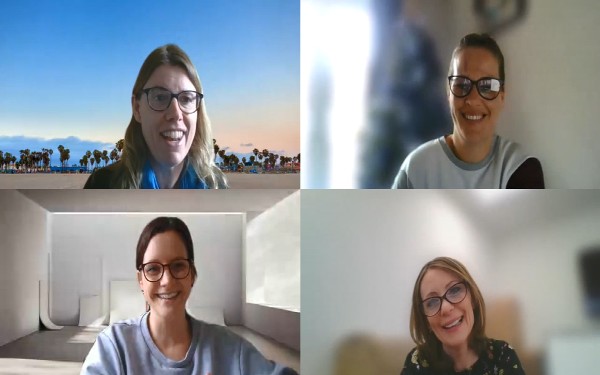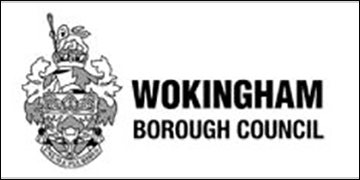“Working under the pressures of Covid has been very tiring and at times isolating. It’s been quite easy to get swept up into doing the next thing and not having the space or time to sit back and reflect on the little things you’ve managed to achieve,” says Olivia, a social worker in the long-term team at Wokingham Borough Council.
This is why Wokingham introduced a twist to its bi-annual practice review week sessions that gave social workers an opportunity to reflect and learn from their peers on practice experiences. Sessions were delivered over Microsoft Teams in one-hour daily slots over the week with around 300 practitioners attending over the week. This allowed them to still prioritise their work, while still refreshing their professional development.

Staying connected © Ekaterina Bolovtsova – Pexels
“Typically practice review week is an opportunity for managers to shadow and observe social workers during their visits, conference and panel meetings and audits the quality of the practice that is being administered by practitioners. But we spun it around so it felt like an opportunity for staff to develop and reflect on practice,” says Adam Davis, assistant director of social care and early help.
It was also an opportunity to connect with a wider pool of Wokingham’s 107 qualified social workers, early help staff, administrators and others, says children’s services principal social worker Rachel Bedford, who organised the practice review week.
These hourly virtual sessions involved staff hearing case study examples from their peers on how they had supported families and children, and these live learning examples provided the basis for reflection on their practice development. The week covered multi-agency working, setting up a professional network around a family, and using tools such as genograms to organise family relationships and organise historical and emotional information about families.
Learning outcome
Rachel worked with Frankie, Jannie and Emma – Wokingham’s Signs of Safety training consultants – to identify the best examples of how social workers have supported families and have harnessed the benefits of strengths-based approaches, such as appreciative enquiry.
Also key to organising the learning section of the sessions were quality assurance officer Marc and policy officer Alice. Alice pulled together a learning resource for staff based on working with networks and involving research and policy, says Rachel.
Rachel says: “The aim was to show how social worker tackled cases and how they overcame challenges to arrive at the best learning outcomes. That gave staff a chance to refresh their understanding of practice such as the services’ Signs of Safety model.”
The aim was to leave staff feeling energised about their work, says Rachel, and for staff like Shantie, who has been a social worker for over 30 years and is manager of the children with disabilities team, it had the desired effect.
She says: “What I saw in practice week was that there was a space for people to open up about their experiences and feel comfortable to share their emotions with others about supporting children and families – and that was lovely to hear.”
For Olivia, the sessions were a definite morale boost, particularly at a time when the opportunity to network has been curtailed due to Covid.
“Regardless of your position – if you’re working with families, the network is key to keeping the children safe and supporting the safety plan. And in situations where families are having to self-isolate, it is easy for things to slip back into a professional-led plan. That’s when networks (other family members, friends) are important and the need to increase indirect contact through virtual calls or distanced visits, to be aware of red flags, becomes important.”
“It is so wonderful to hear about such great pieces of work and the significant impact that we can have on families. It is a great reminder of why we do the work that we do. Well done and thank you all for sharing such great practice!! – a practice week participant.
Learning
Although Olivia did not publicly share her experiences during the webinars, she was able to reflect on her own achievements. Among them, was getting grandparents on board with a child’s care plan where there had been some resistance from the child’s mother for quite a long period of time. In another case, Olivia had been able to secure housing for a mum who had suffered horrific domestic abuse.
“Housing can be very difficult to get so when we can achieve that goal and see a child’s positive transition, and you are able to support a family in meeting those milestones, that is when we have to give the families credit,” Olivia says.
The housing has been able to provide permanency which has positively impacted the child’s stability within school, their routine and provide a safe and stable home environment. I worked with the allocated housing officer closely to keep them updated with the on goings of the case to ensure that the family were placed within the housing allocation service at the correct level.”

Working from home © Roberto Hund – Pexels
And that is where Signs of Safety can help to identify the areas in people’s lives that are working well and bringing in the networks (family and friends) to support that.
“When Mum starts to feel calmer that impacts on the children. And when the families start to reflect and understand how a certain action, such as taking their child to the dentist, will help them long term, that’s when I get parents telling me they understand and they start taking ownership. That’s when you start to see the transformation.
“Sometimes we can forget the small things we do within social work that are achievements, because we are so busy and go on to the next thing without reflecting on it. So this focus on networks was brilliant because we heard so many achievements from other people about how they have pulled those networks together.”
There are plans to adopt a similar approach or a hybrid model for subsequent practice review weeks moving forward.
Adam says: “At Wokingham, we are only as good as our staff, and delivering reflection and learning in this way enabled staff to feel connected to the wider team despite working remotely and while managing their day-today work. We have also see that this approach attracted high attendance – around 80% of our social workers participated – and this is something that we would struggle to do in a physical setting. Moving forward, there is scope for a hybrid event that takes the best from remote and face-to-face interaction.”
What Olivia, Shantie and Rachel say about working at Wokingham
- Consistent management – “senior leadership are visible, approachable and in permanent roles,” – Olivia.
- A small local authority – “there’s more opportunity to gain a breadth of knowledge and get to know a cross-section of the teams you work in,” – Shantie.
- Reflection time – “there is focused time on Signs of Safety and there are regular refresher courses,” – Shantie.
- Open to new ideas – “There are opportunities to propose ideas, such as adapting practice week to suit the new working environment,” – Rachel.
- Working environment – “Nice with a collaborative culture,” Shantie.
- Caseload management – “It is not about the caseload for staff here but more about the complexity of the caseload, the breadth of cases and opportunities to grow. Your manger will look at your capabilities for reflection, theory and the practice, and ability to take on more challenges,” – Olivia.




 Facebook
Facebook X
X LinkedIn
LinkedIn Instagram
Instagram